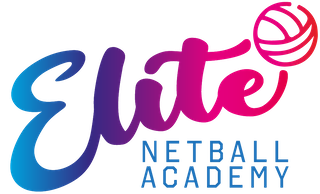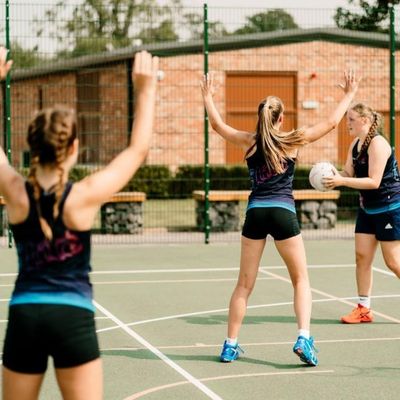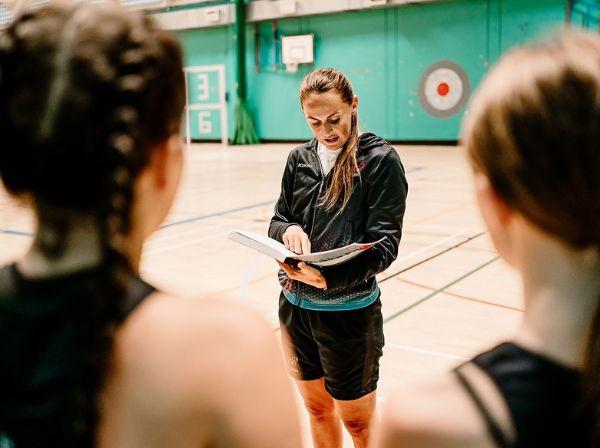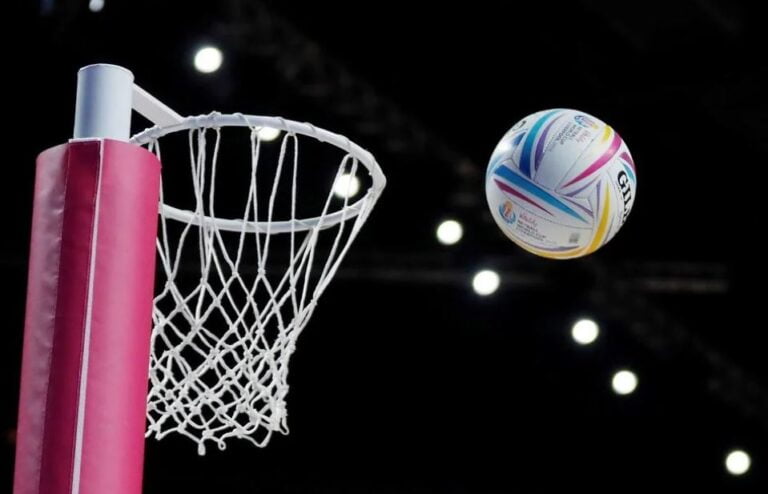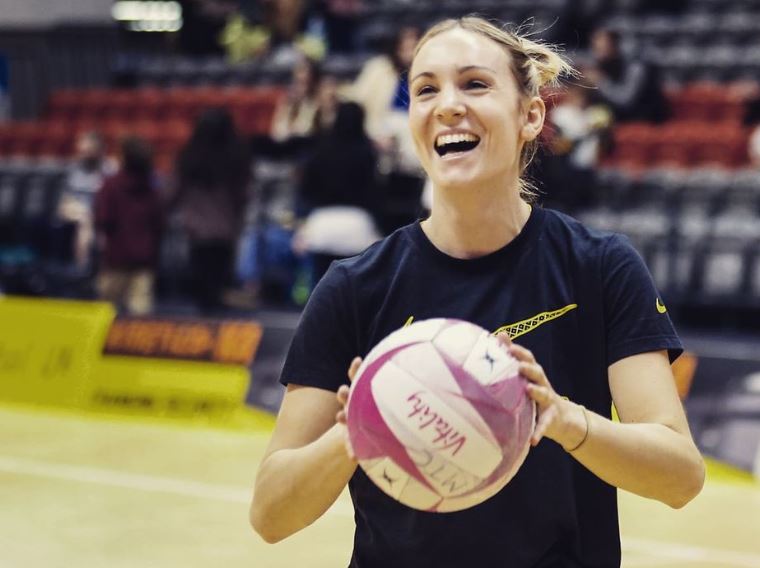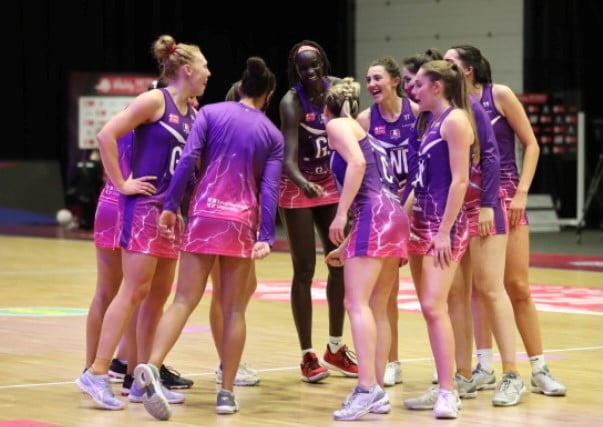How To Become A Netball Coach
Erin Hodgkiss is a Level 2 netball coach and part of the Elite Netball Academy coaching team. An accomplished player in her own right, Erin is currently recovering from an ACL injury sustained while playing for Leeds Rhinos U21 team.
While on the sidelines, Erin has been able to commit more time to her coaching with Elite Netball Academy where she coaches a group of our High-Performance Centre athletes. When Erin’s not coaching for us, she also coaches at Leeds Athletic Netball Club and has recently been appointed as Head Coach of Leeds Rhinos U16s pathway team.
So, let’s find out more from Erin about how to become a netball coach.
How did you become a netball coach?
You can become a netball coach by helping and volunteering at sessions before or after training with your club. This is how I got into coaching. While helping at sessions I tried to soak up as much knowledge as possible and then went on to complete a Level 2 course to become a qualified netball coach.
What qualities do you believe a netball coach needs to have?
It might sound obvious – a netball coach needs to be passionate about netball! As well as personal development and commitment to bringing the best out of all the athletes. They also have to be adaptable and positive to be around – this positivity can be infectious and our job is to inspire as many young people to fall in love with the sport as possible!
What do you like about Elite Netball Academy?
Elite provides an all-round performance environment which is so beneficial for aspiring netball athletes. It shapes and builds an individual as a whole not just on the netball court! The opportunities offered to Elite Netball Academy players are incredible!
When did you first meet our founder Anna Carter?
I first met Anna when I was 12 years old. I did one of her summer camps and from then on I joined as many of her netball camps and classes as I could!

Who inspired you to become a netball coach?
The coaches I was shadowing at my club sessions inspired me to share my knowledge to help the next generation of athletes and give back to the sport that I fell in love with at such a young age.
Do you need qualifications to be a netball coach?
To become a lead netball coach you have to complete your Level 2 Coaching Qualification through England Netball. To become an assistant you can complete a Level 1 qualification. Alongside this, you have to be DBS checked, complete a safeguarding course and pass your first aid.
How have netball coaching opportunities changed in the last 10 years?
Due to an increase in netball participation, there are a lot more courses and workshops available as well as resources provided by England Netball to help improve the standard of coaching across the country. It’s a really exciting time for the sport.
What would you say to anyone who might want to become a netball coach?
Learn as much as you can about the game and appreciate that you’ll never stop learning! Try new ideas and ask lots of questions! As long as you have a passion for it and a willingness to improve and learn you will be able to pick up the main coaching aspects. Once all these things are in place, the knowledge will flow out effortlessly.
What’s it like coaching on the Leeds Rhinos pathway?
Coaching on the Leeds Rinos Pathway is super exciting! I’m very grateful for the opportunity to lead a performance group that represents the region and be able to coach them through competitive games against the best players from other regions! It’s challenging me as a coach due to the large amount of talent which is also exciting as it will help me progress in my coaching capabilities.
ACL Injuries in netball
Erin is currently recovering following an ACL injury sustained while playing for Leeds Rhinos. Netball is a fast-paced, high-impact game that requires quick movements including pivots and controlled landing patterns. Due to the nature of the game, unfortunately ACL injuries in netball are commonplace.

How is injury recovery going?
My recovery is going well, the rate of improvement is speeding up and I am able to reach a lot of milestones. It’s still a very very challenging process and I have learnt so much about myself and my limits along the way. I have had many low points but I am starting to see the benefits of all the hard work going on behind the scenes.
What would you say to any athlete going through similar?
My advice to any athlete recovering from an ACL injury is to remember that you can’t have a good day every day. It’s completely normal to feel frustrated or upset when rehab hits a bump. Be grateful for all the milestones you’ve already hit and other aspects of your life that have improved along the journey. I have found it so useful to focus on how I am feeling in general and not just that hour or day. I no longer put any time pressure on myself and this has helped me mentally. Track your progress and when you find it tough, go back to look at where it all started and how far you have come since then.
How long after ACL surgery can you play netball?
After ACL reconstruction surgery it usually takes around nine months to one year until you can play netball again. It’s worth remembering that every rehab journey will look completely different. The main thing is that you are pain-free when completing your exercises and you feel 100% confident before returning to the court – don’t rush it to hit deadlines placed on you at the start of the rehab process.

What has ACL recovery looked like?
My rehab has been up and down along the way but since surgery, the flow has included; getting range of movement back – weight baring – body weight gym – lots and lots of heavy gym sessions – plyometrics – alter G sessions – running. Up next in my ACL recovery programme I have more running – introducing changes of direction – ball skills/drills – going back to training – starting contested training – and then finally match play. I cannot wait to get back on the court with the team.
What would your top tips be on how to prevent netball injuries?
To prevent netball injuries, you need to look after your body. It’s not indestructible and it has limits, learn your capabilities and listen to what it’s telling you. Gym work is also key. Strength and conditioning is something I’ve always done as I had to as part of the training setups I’ve been involved in. Since my ACL injury I have been able to understand the importance of completing gym sessions with intent. Staying fit and healthy, making sure you have good overall balance and making smart and professional choices about your physical and mental wellbeing is also key.
Enjoyed this content on how to become a netball coach and want to progress your netball coaching journey?
Elite Netball Academy can help!
Our Coach and Teacher support programme invests in coaches who are serious about their journey and personal development and who are driven to make their coaching environments the best they can be – click here to find out more.
Through our coach training videos, get exclusive access to training drills, set plays and netball coach resources created by our founder and former Superleague head coach Anna Carter. Access the videos here.
We also offer a netball mentoring and advisory service. Led by Elite Netball Academy expert coaches, our Netball Mentoring and Advisory Service supports organisations and clubs on how to structure their netball, with our experience, vision and content support. For more information, head this way.
